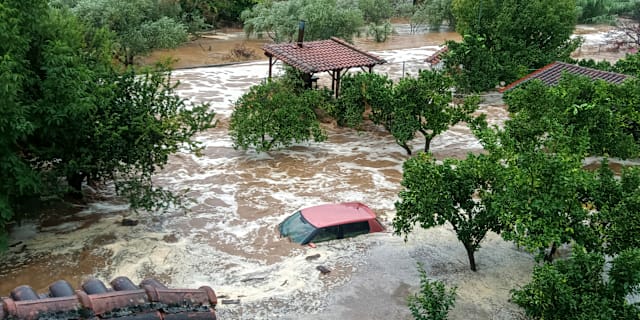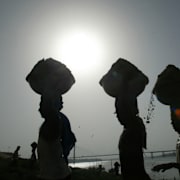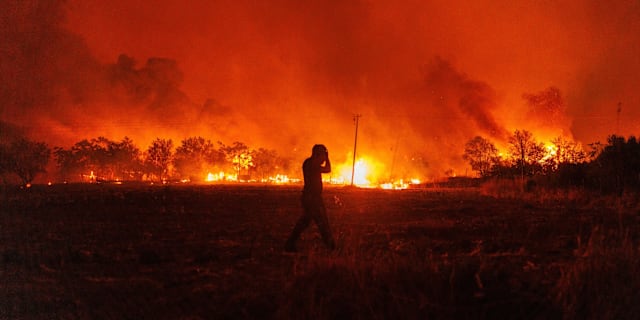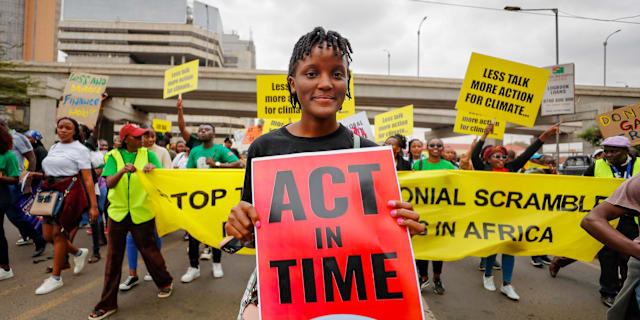Forest fire in Greece. Achilleas Chiras / AP
The climate threat|Global challenges
Double alarm from the UN and the EU: "Climate collapse has begun"
The summer in the Northern Hemisphere was the warmest since measurements began, the World Meteorological Organization WMO states in a new report. July and August were the two hottest months ever measured, AP writes.
- Climate collapse has begun, says UN Secretary-General António Guterres.
At the same time, the EU's climate service Copernicus states that 2023 will likely be the warmest year in human history, AFP reports.
- The last three months were the warmest in about 120,000 years, says Copernicus deputy director Samantha Burgess.

Flooding in the village of Milina in central Greece. Thanasis Kalliaras / AP
Climate threatExtreme weather in Europe
At least seven dead after heavy rainfall in southern Europe
At least seven people have died after heavy rainstorms and floods in Turkey, Greece and Bulgaria.
In
Turkey, two people died after being swept away by a flash flood at a
campsite in the province of Kirklareli in the northwestern parts of the
country, AP writes. Two more people have died in Istanbul.
In
Bulgaria, two people have died after a storm caused flooding on the
country's Black Sea coast, according to Prime Minister Nikolaj Denkov.
Kyriakos
Mitsotakis, Prime Minister of Greece where one person died after floods
around the city of Volos, blames the recent extreme weather on climate
change.
- I am afraid that the carefree summers, as we knew them ... will end and that the coming summers will probably be even worse.
The storms and heavy rainfall occur in the wake of the summer's extreme heat and forest fires

Archive image. Workers in India carry away sand. Rajesh Kumar Singh / AP
The UN warns: The extraction of sand makes the oceans sterile
The UN environmental agency UNEP warns that sand is being dug up from seabeds at a much too high rate, reports Reuters. Sand is the world's most exploited natural resource and every year around 6 billion tonnes are dug up for use in the construction industry, among other things.
- The amount of sand that we remove from nature is extensive and has a big impact, says Pascal Peduzzi from UNEP.
The large vessels used in the extraction "basically sterilize the seabed by taking up sand and crushing all the microorganisms that the fish live on," according to Peduzz
Activist Vanessa Nakate from Uganda protests outside the meeting. Brian Inganga / AP
The climate threat|Global challenges
African leaders demand global climate taxes
African leaders propose new global taxes to finance action against climate change. Reuters writes this after the African climate summit in Kenya ended on Wednesday.
African
countries are among those most affected by climate change, but
according to scientists, the continent receives only 12 percent of the
money that would be needed to meet the needs.
The
meeting's organizers had previously advocated market-based solutions to
finance the measures, but the meeting ended in clear demands that large
emitters should contribute more money to poor countries.




Inga kommentarer:
Skicka en kommentar